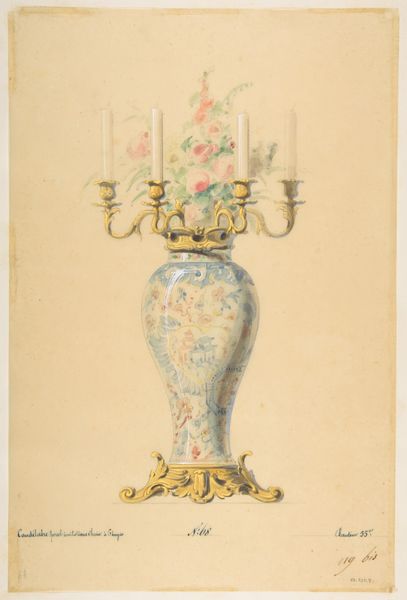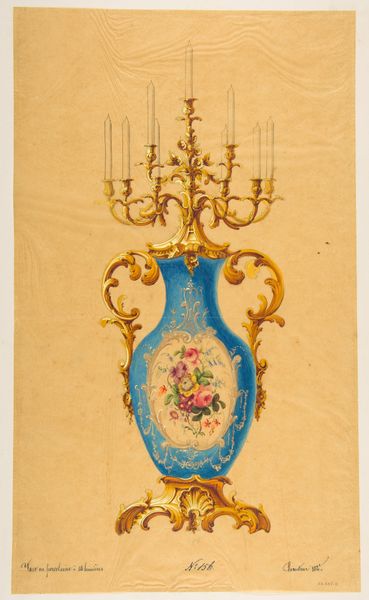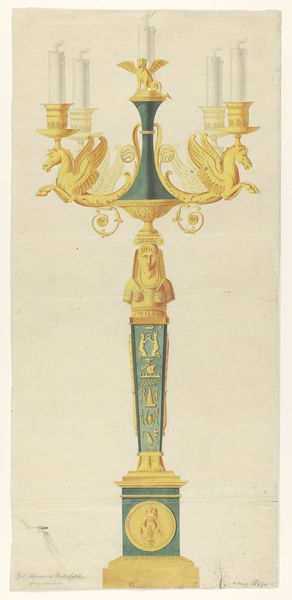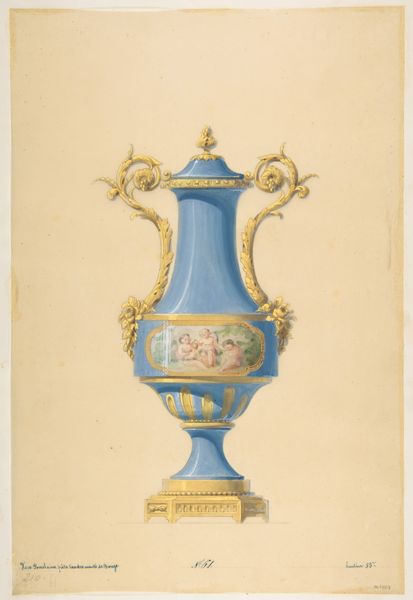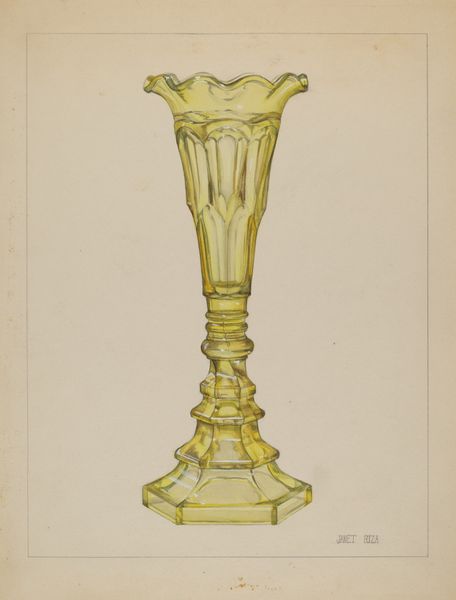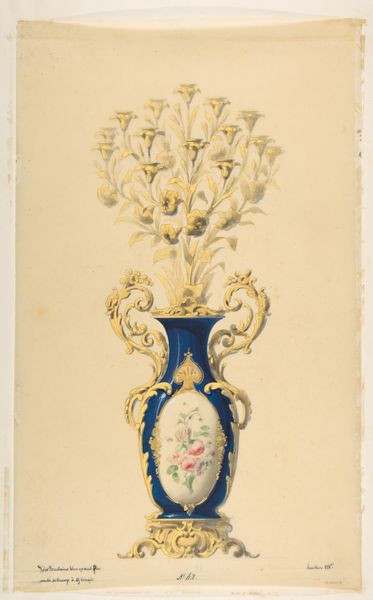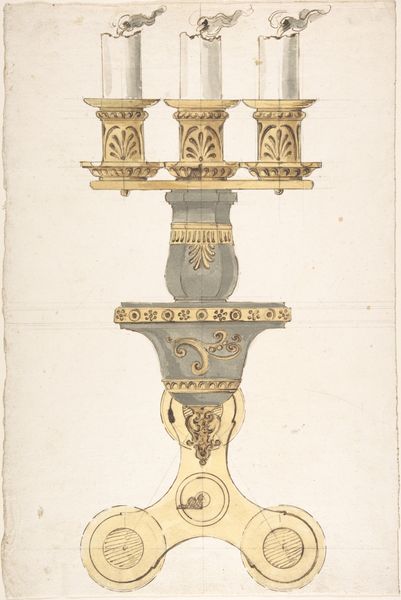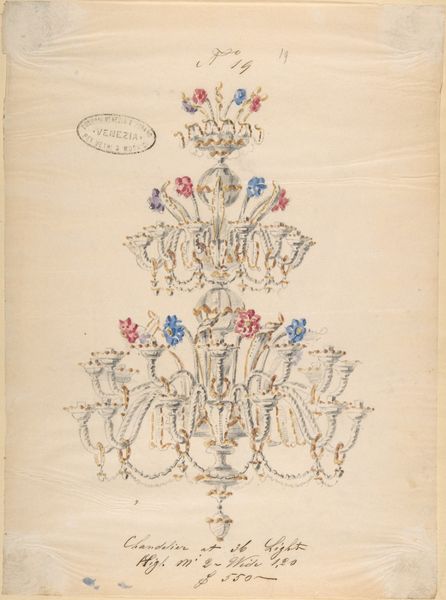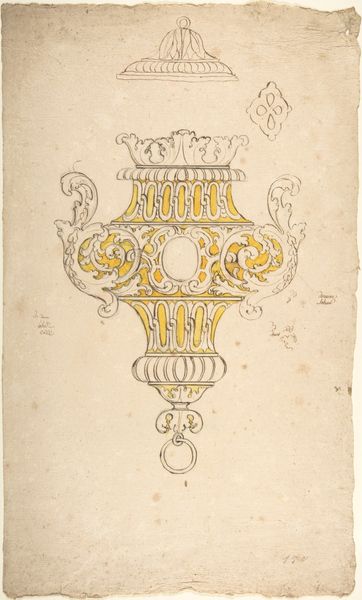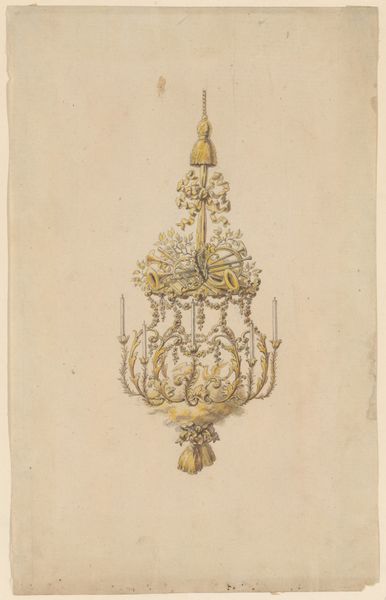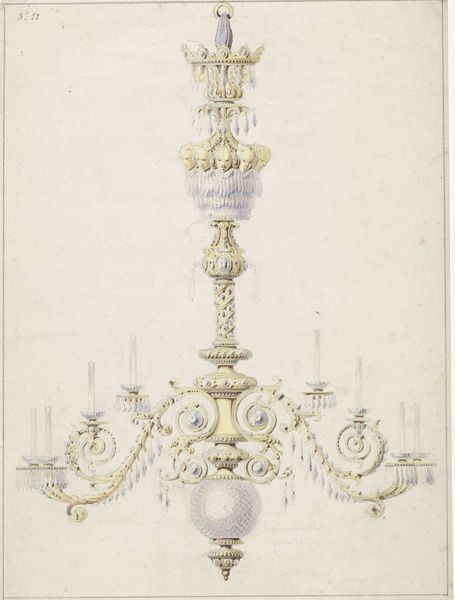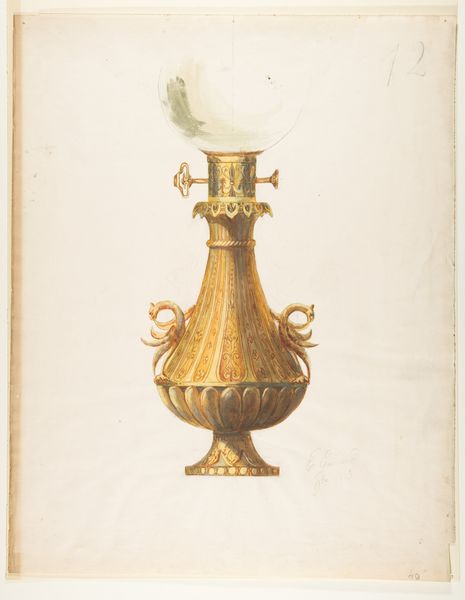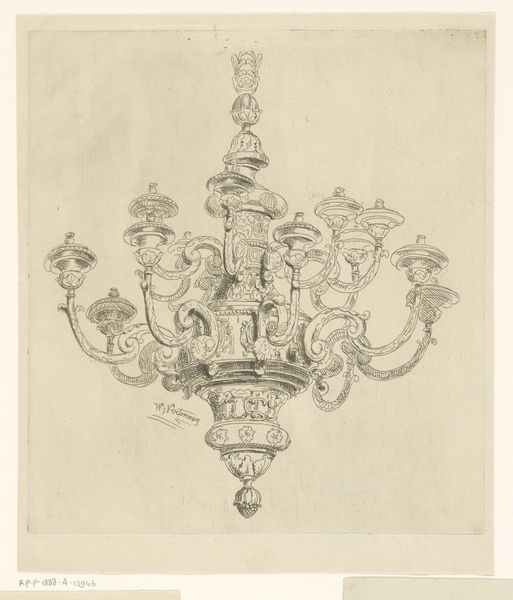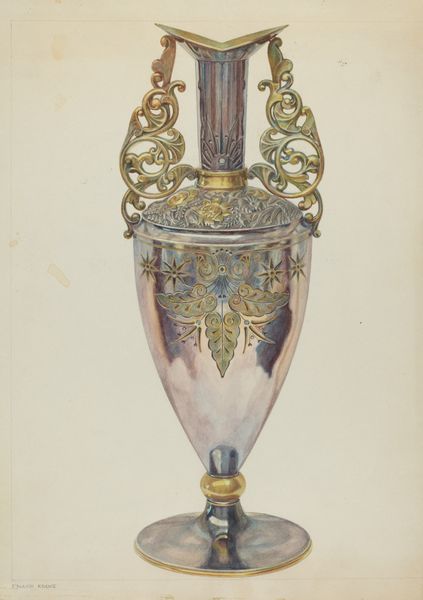
drawing, coloured-pencil, print, ceramic, watercolor
#
drawing
#
coloured-pencil
#
water colours
# print
#
ceramic
#
watercolor
#
coloured pencil
#
ceramic
#
decorative-art
Dimensions: sheet: 14 x 10 3/8 in. (35.6 x 26.4 cm)
Copyright: Public Domain
Editor: Here we have a drawing titled "Design for a Vase," dating from the 19th century. It's made with colored pencil, watercolor, and maybe even a bit of print. I find the ornate details surprisingly soothing. What visual symbols jump out at you? Curator: Immediately, I’m drawn to the roses within those oval frames. Roses, of course, are heavily laden with symbolism. Often, they represent love and beauty. But within a vase design? Think about the ephemeral nature of cut flowers— a fleeting beauty captured and preserved. Perhaps a memento mori, a reminder of mortality subtly woven into this otherwise decorative object? Editor: That's a perspective I hadn’t considered. The fleeting nature of the roses versus the presumably lasting vase... I love that contrast. Curator: Exactly. And consider the overall symmetry and contained floral motifs. It evokes a sense of order, a deliberate attempt to control nature, to bring it indoors and confine its wildness within a designed space. Do you see other examples of this impulse toward containment? Editor: The vine-like designs traveling up the neck feel more free-flowing, almost untamed, contrasting with the formal roses lower down. It’s as if there’s an attempt to balance wildness and control. Curator: A very astute observation. Perhaps it speaks to the Victorian era’s fascination with the exotic while maintaining strict social structures. The vase itself becomes a microcosm of their world view. Editor: That's fascinating. I'll never look at a vase the same way again. It makes you realize how much history and thought goes into even seemingly simple design choices. Curator: Indeed. Every line, color, and motif carries a story waiting to be uncovered.
Comments
No comments
Be the first to comment and join the conversation on the ultimate creative platform.
